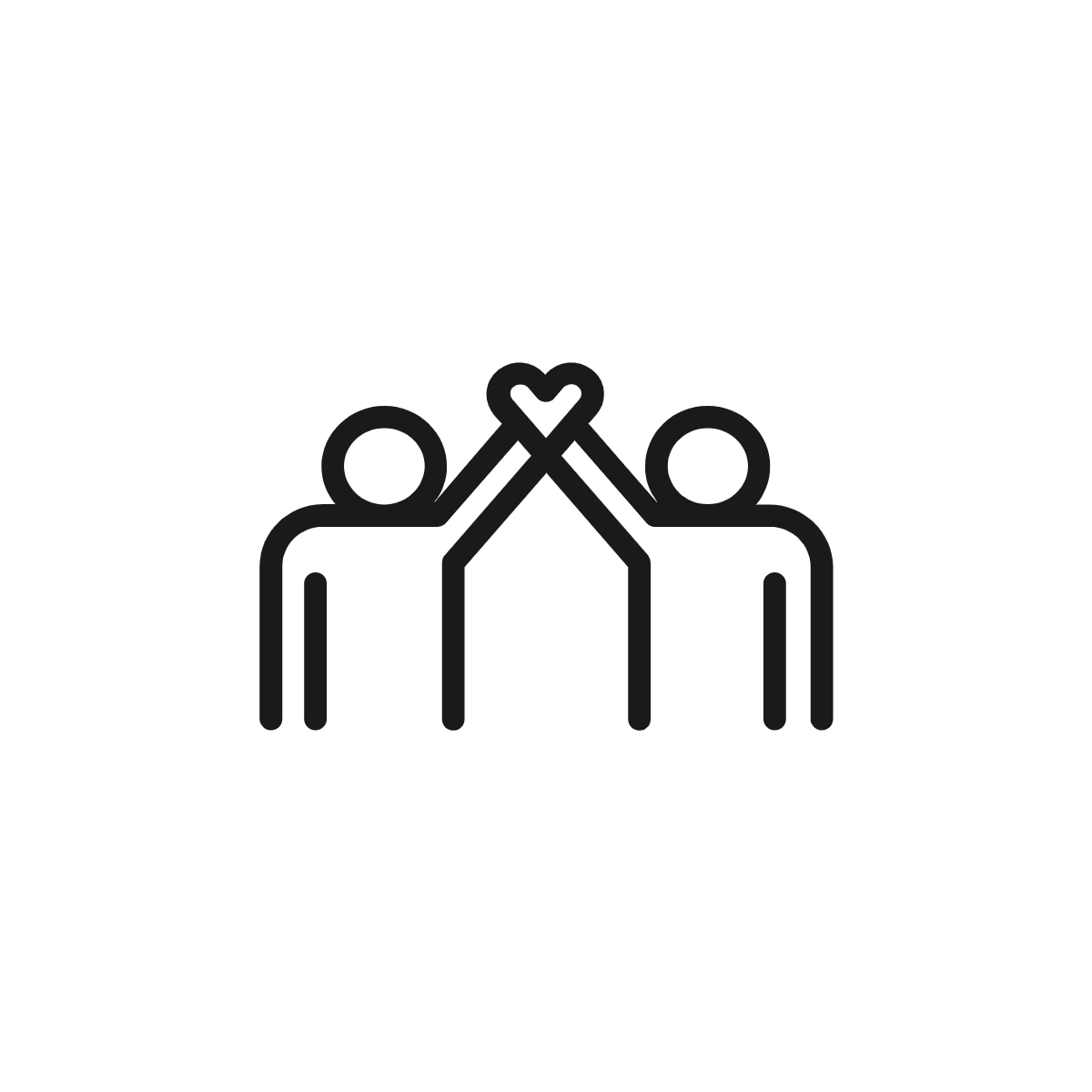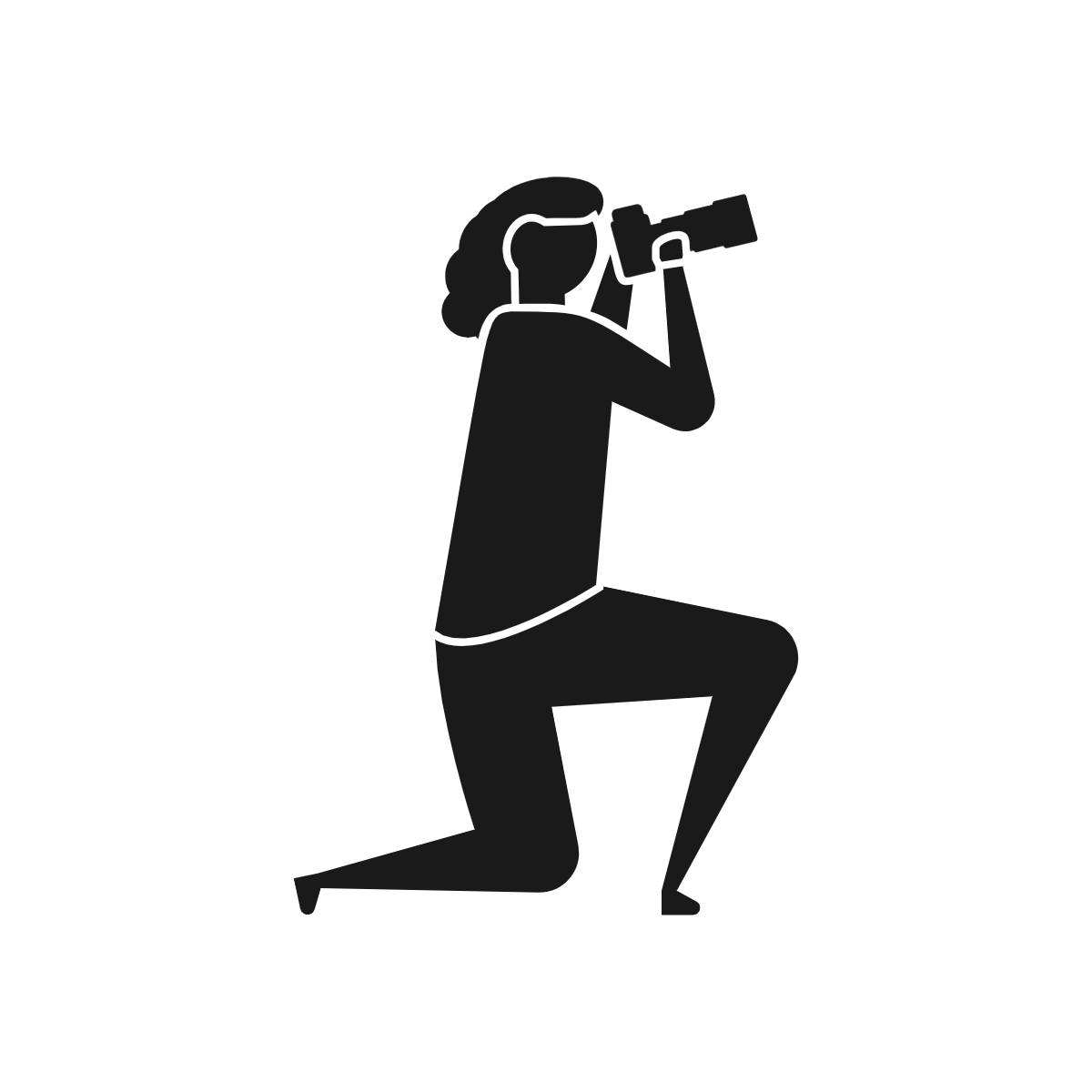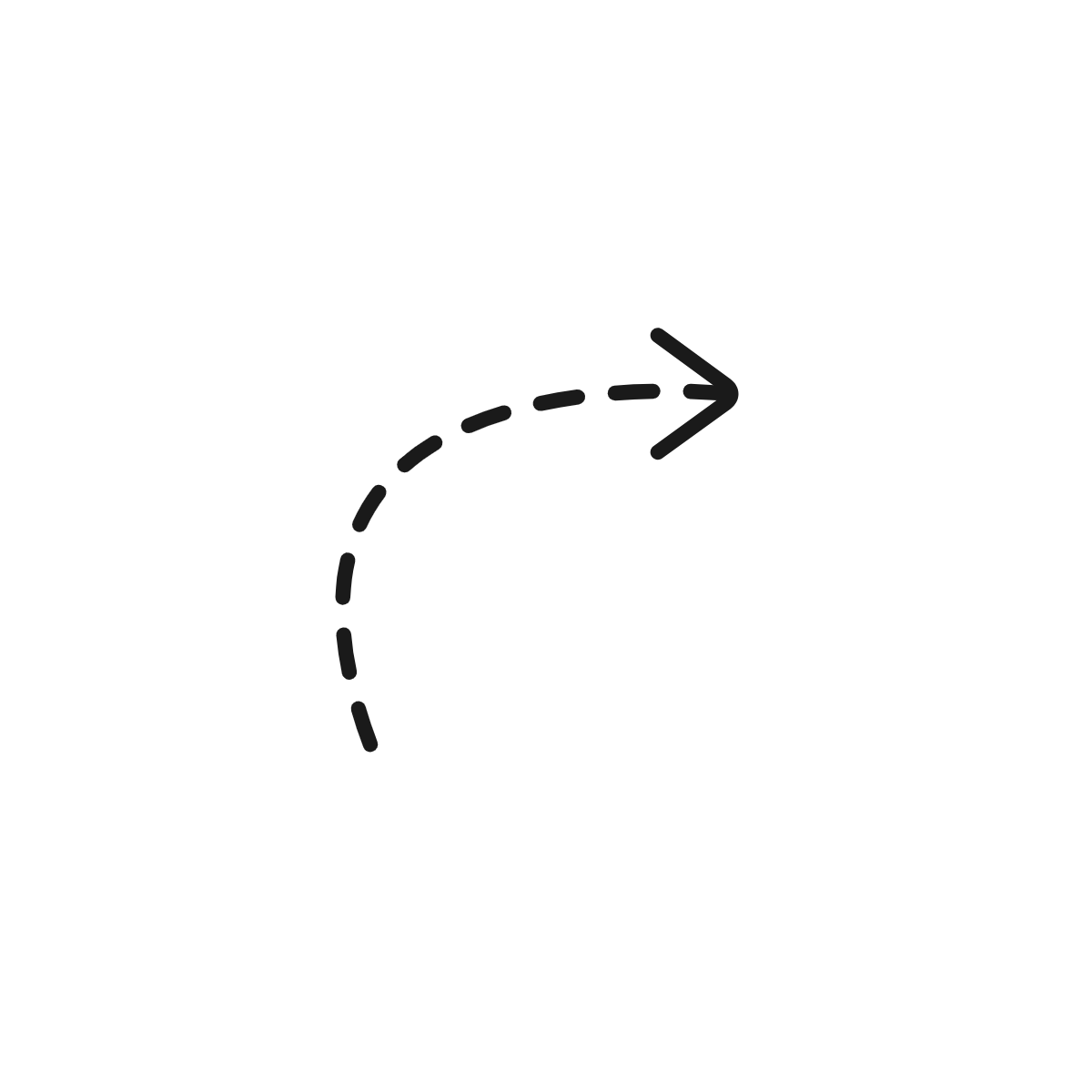Life notes on wisdom and effectiveness
The Wisdom of Hope
How do you navigate the unknown?
How do you navigate the unknown?
Confession time: I have always been annoyed by the word ‘hope.’ It seemed too vague and part of manipulative fundraising. I’ve much preferred the solid confidence expressed in ‘hope is not a strategy.’ I’m starting to see how wrong I was.
Hope is an underlying setting toward life that animates the adaptive and healthy pursuit of our deepest goals: We hope our children will flourish. We hope that we will maintain our health. We hope for a happy marriage. There is no certainty or proven strategy to achieve any of these. Instead, it is hope that inspires and guides the sustained effort and adaptive response needed for success.
Confidence and proven strategies are great when life is familiar and we can walk on a marked trail. However, when we’re in unknown territory, inventing, and seeking breakthrough ideas, we need to set our compass toward the inspiring pull of hope.
Yesterday: Our Reliable Reference
Wise decisions are fit to the specific context, not general theory.
When do you know that your life has changed?
The most reliable and useful measure (or as evaluators say, ‘counterfactual’) most of us have in our own growth journey is - yesterday. What we felt yesterday, knew yesterday, experienced yesterday. And not yesterday as the literal previous 24 hours, but it in the broader sense of the emotionally relevant, consciously alive past.
The proof of change is when we know - and know that we know - that our today is different from our yesterday. That knowledge is the feedback system for growth - so how we respond to that knowledge is critical. If the change feels like a loss, we typically respond with fear, defensiveness, or avoidance. If the change feels like growth or is otherwise positive, we tend to respond in openness and embrace. Intuitive as those reactions are, I’m starting to realize that the deepest wisdom - and potential for even deeper learning - lies in choosing to respond to either type of change with openness and embrace. Fully accepting what - or where - we are (for better or worse) is at the very least the starting point for our next step...and also helps us make the most of the moment.
Context-Driven Decisions
Wise decisions are fit to the specific context, not general theory.
Wise decisions are fit to the specific context, not general theory.
Ironic though it is, I’ve sometimes felt a level of unthinking devotion to the idea of ‘data-driven decisions.’ Without intentional thought given to the context and process, ‘data-driven’ can end up just serving pre-existing assumptions, convictions or theory -- rather than the real needs of real people. For example, important efforts like vaccination campaigns can be quickly launched when informed by generic approaches and assumptions - but they will run into unnecessary surprise barriers when the important differences between specific demographics and micro-regions assert themselves.
To help underscore the critical mindset, I suggest pursuing context-driven decisions -- decisions that serve the nuanced needs of diverse people living in varied contexts. Those pursuing context-driven decisions will still collect data, but will design their efforts to push beyond popular assumptions and theories to more deeply understand the nuances between people and regions.
Hire for Deep Skills
How could you prioritize both shallow and deep skills?
How could you prioritize both surface and deep skills?
Employers often distinguish ‘hard’ skills (e.g., specific knowledge or abilities like computer coding or cutting hair) from ‘soft’ skills (e.g., general qualities like collaboration or communication). I often hear a similar distinction between ‘hard’ metrics (i.e., quantitative) and ‘soft’ metrics (i.e., qualitative). Labeling these different domains as ‘hard’ and ‘soft’ is harmful on at least two levels. First, the terms communicate a level of clear distinction (like different parts in a machine) that ignores the interconnected, organic realities of real life. Second, these terms often carry a strong and mistaken prioritization toward the ‘hard.’ Who wants to argue for the importance of the vagaries of the ‘soft’ when the ‘hard’ is so obvious and clear?
I propose that anyone interested in achieving long-term excellence banish these terms in favor of an alternative that flips the prioritization: deep and surface. Using these terms will help us remember that our work is an integrated whole. “Hard” skills like programming proficiency are reframed as ‘surface’ skills...which we can intuitively picture as connected in a seamless union to the ‘deep’ skills like trust, agency and cooperation. Additionally, this highlights that the ‘surface’ qualities employees bring to the job will provide limited contribution unless they are combined with ‘deep’ qualities like honesty and integrity. Reframing away from "hard and soft" helps us pay better attention to typically ignored (or taken for granted) qualities like trust, hope, motivation, curiosity, love, and integrity - qualities that are in fact the deep foundations of success.
Humility and Confidence
Humility is the small door to wisdom that opens to all who are willing to bend.
Humility is the small door to wisdom that opens to all who are willing to bend.
One important step away from data-driven foolishness is to find a new perspective on two key filters within our decision-making process: humility and confidence. When I consider my own approach to these qualities, I find that I tend to twist them in harmful ways - something like the following:
Humility (n): A disagreeable lack of confidence appropriate for OTHER people.
Confidence (n): The deeply desirable feeling that my decisions will produce superior outcomes because they are informed by the unbiased data guiding my own wise perspective.
Wise decisions require a new perspective on each of these qualities. As food for thought, I’d suggest the following definitions:
Humility (n): The door to wisdom which opens when I intentionally confront the limitations of my knowledge, perspective, and goals.
Confidence (n): The dangerous feeling that contributes toward ignoring the limitations of my knowledge, perspective and goals.
How might you describe your relationship with humility and confidence?
Data-Driven Foolishness
How often does data justify foolish decisions?
How often does data justify foolish decisions?
Most of my evaluation work involves the production and communication of data to serve the broad goal of informing ‘data-driven decisions.’ While I deeply believe that good data is a critical piece of the whole, data is not an isolated factor that ‘drives decisions’ in a vacuum. The process by which data is gathered, and the intentionality that goes into decision-making is equally critical and often mistakenly minimized. Within a good process, data can contribute to wise conclusions; within a poor process, data can contribute to foolishness. The key is therefore the process surrounding the data collection and use, not the data itself.
When a process for data use goes wrong, it’s often due to the imagined assumption that our decisions are made in sterile environments with surgically specific use of data. A good first step toward developing a good process is therefore turning away from the comforting illusion of sterile logic and facing the real world of messy, dynamic humanity. A big step toward wisdom is honest acknowledgment of our conflicting priorities, variable relationships, and underlying uncertainties, and the ways they influence our perception and utilization of data.
Making Pictures and Producing Data
Do you ‘collect’ or ‘produce’ data?
Do you ‘collect’ or ‘produce’ data?
Do you ‘take’ a picture or ‘make’ a picture? While in the USA we typically say ‘take a picture,’ other languages and countries use the more active phrase ‘make a picture.’ A whole host of decisions influence the final image: length and quality of the lens, size of opening between the lens and recording surface (F-Stop), length of time the shutter is open (shutter speed), and quality of the recording surface (sensor or film), to name just a few.
Given these decisions, the evocative, active word ‘make’ seems more truthful than the distant and passive ‘take’. We are not ‘taking’ an image that is passively laying there, but rather actively guiding a collaboration between our goals, our chosen photography equipment, and the light bouncing off the world around us.
In the same way, the passive and distant term ‘data collection’ obscures the deeper truth of the dynamic interactions between our goals, chosen data collection tools (e.g., surveys, interview protocols, recording equipment) and program participants. We don’t ‘collect’ data that is passively laying there, but we instead actively coordinate an interactive data production process. In some ways, you could even say we actually make data.
Let me know how the phrase ‘data production’ prompts helpful reflection and deeper honesty about our active role in the process.
Standards and Contentment
Do you want a life that achieves high standards... or contentment?
Do you want a life that achieves high standards...or contentment?
The leaders we tend to admire have at least one thing in common: they hold themselves to very high standards. From the exercise routines of athletes to the diets and skin care regimens of models to the 24-7 work and perfectionism of business leaders, climbing to the heights of success clearly requires substantial work and dedication.
While I see the value of high standards, hard work and dedication, there is one unintended consequence that worries me: discontentment. I respect a drive for excellence, but at the same time, never being satisfied and always striving for more isn’t how I’d describe ‘the good life.’ Conceptually I want both high standards AND contentment...but I’ve come to see that I regularly need to choose. My broader goal is a life to be characterized by peace, fullness and contentment, and achieving that requires regularly stepping off the hamster wheel of ever-higher standards. How have you been able to balance these goals?
Wisdom of Surrender
As we hope for a better 2021, what in your life needs more effort... and what needs to be surrendered?
As we hope for a better 2021, what in your life needs more effort... and what needs to be surrendered?
Our will -- a combination of our desires and deepest convictions about how the world should work -- faces mortal enemies and direct attack every day. It’s as if we live on the rack, stretched between our convictions about how our world should be on the one side and on the other, the experience of all the ways it falls short: sickness, failures, and loss.
I generally try to escape this tearing tension with greater effort: Try harder, work smarter. However, I’ve observed – and even tried a few times – a different approach. There is a surrender – an end of effort, a release – that can sometimes advance our deepest goals more fully than even our best efforts. We can choose to stop pouring energy into fruitless efforts. We can release injury in a spirit of forgiveness. Disappointments can be surrendered and transformed into peace. We can recast the deep longings that are so emotionally powerful as to pull our joy into blackness into a healthier, more peripheral role.
These shifts might be wise and beneficial, but that doesn’t make them easy - or intuitive. They generally still feel painful and are still a form of loss. As we hope for a better 2021, what in your life needs more effort...and what needs to be surrendered?
What is a Healthy Perspective?
What one person experiences as a ‘terrible day’ could easily be a ‘dream come true’ for another.
What one person experiences as a ‘terrible day’ could easily be a ‘dream come true’ for another.
The saying ‘one man’s junk is another man’s treasure’ highlights an important truth about evaluation: the difference between ‘junk’ and ‘treasure’ is based more on perspective than objective fact. Parents wanting to clean their house have good reasons to throw away comic books…while children hoping to build a valuable collection have equally good reasons to save the piles.
I find this same dynamic at work when we evaluate our lives. One person’s ‘terrible day’ could be what another would consider a ‘dream come true.’ For me personally, I now fondly remember some days that were at the time experienced as miserable. The difference between the experienced misery and my nostalgic memories is in my changed perspective.
The fact that something in my own head--my perspective--can change an evaluative conclusion from ‘miserable’ to ‘fond memory’ is a problem for my evaluative aspirations. I’d like to think of my evaluative judgments as stable, or at the very least not fully reversible. And yet as an evaluator I need to accept the data pointing toward this reality. Now that I see the fluidity of my perspective in opposition to stable evaluative judgment, my new questions are: is there a ‘best’ or ‘healthy’ perspective, and if so, how would I know? I’ll keep wrestling with this, but let me know if you have any ideas!
Pressing into the Unknown
What do you care about so much that you will do anything that MIGHT help?
What do you care about so much that you will do anything that MIGHT help?
Acceptance to top universities, participating in the Olympics, being nominated for a Nobel prize, securing a position on a prestigious board, winning a large contract—these rewards and many like them are given to those who ‘merit’ them. Enticing as these prizes may be, there is no straightforward path to these heights of success; no clear and consistent how-to guide for achieving this ‘merit.’ Certainly some of the factors can be identified and are well known: academic performance, personal relationships, relevant experience, family and racial background, and physical health all contribute to success—but none of these actually cause success. Instead, these factors and many others work together in unknown and variable ways in the selection process for each prize.
I’m interested by the fact that in this type of competition, the lack of a consistent and clear path doesn’t necessarily halt our ambitions. Quite the opposite, in fact -- it encourages those who are determined to do anything that MIGHT make a difference. Aspiring Olympians (for example) will reorient their entire lives in case that one extra thing MIGHT give them an edge.
What do you care about so much that you will do anything that MIGHT help? What is the difference between the things in your life that—despite all the unknowns—get a blank check, and everything else? I’ve been wrestling with these questions recently and would love to hear from you!
Expectations: Our Inner Evaluator
Expectations are the voice of our inner evaluator.
Expectations are the voice of our inner evaluator.
“I thought we were on the same page.”
“I guess I was just hoping for a chance to rest.”
“I’m really happy with the way this turned out.”
Expectations are the common denominator in these three statements -- and in an infinite range of others like them. Our personal internal setting for the way things should work provides the benchmark for determining how we feel about how things actually do work.
The good news is that these invisible evaluators can help us learn and improve; the bad news is that they can also steal joy and strain relationships. The first step toward turning this force for good is to be as intentional as possible in uncovering and naming expectations. Evaluation is too important to operate in the shadows - so we shouldn’t let our inner evaluator work in the dark!
Feelings
Feelings are the evaluative dashboard of our primal core.
Feelings are the evaluative dashboard of our primal core.
Feeling good = all is well. / Feeling bad = need to change something.
This is so obvious as to be uninteresting, but it has profound implications. On one hand, our culture has been built on a foundation that prioritizes rationality (e.g. observable, tangible, measurable) over the emotional for good reasons. Our emotions are so responsive to simple inputs (e.g. sleep, food, chemicals like alcohol and caffeine, etc.) that trusting the conclusions they provide has been the very definition of irrational for millennia.
Clear as that may be, the limitations of emotions are only half the story, and there is another dimension of the truth we also need to respect. Feelings emanate from our unconscious primal core, and thus are important and useful indicators for primal-level relevance. If I feel like a failure then I am experiencing failure--and it makes no difference if some theory or other people say that I’m actually successful. I have known many people that I consider successful, but it’s rare to find a successful person who actually feels successful. Childhood food preferences provide another great example: I had a visceral hatred of squash, and knowing that hungry kids in Africa would be grateful for it was utterly irrelevant--eating my required bites still made me gag. While rationality would have us ignore our emotions, wisdom respects the primal feedback they provide.
Expectations: Hidden Life Blinders
What risks and rewards might be hiding beyond your expectations?
What risks and rewards might be hiding beyond your expectations?
Harnesses used for horses sometimes include a flap of leather that sits next to their eyes, cutting off peripheral vision so they can only see what is in front of them. Expectations have much the same effect on our lives - keeping us focused on what we actively expect and hindering our ability to even see what we don’t.
Life will always hold surprises, but we can minimize needless stumbling by widening our perception to see beyond initial expectations to identify the risks and opportunities hiding in plain view.
Should
If we want to make better judgements and find more peace with the lives we’re living, we ‘should’ be more intentional about our ‘shoulds’!
Evaluation is such a natural part of our everyday lives that most of the time we aren’t even conscious of the role it plays. While letting many of life’s processes remain unconscious is a valuable way to conserve our limited attention, I believe that occasionally looking under the hood to understand the functioning of our evaluative engines can also be helpful.
A great place to start can be learning to recognize the words we commonly use that spark an evaluative reaction. For example, questions about ‘why’ prompt a response with ‘because’ in a clear evaluative pattern. The use of the word ‘should’ is another good indicator that our evaluative engine has kicked in. Thoughts like “I should be farther along by now” express falling short of some standard. Similarly, “they shouldn’t have… ” expresses the conclusion that someone has missed the mark against some criteria or standard. “Should’ indicates we’re doing evaluation because it implies a benchmark (generally unconscious) against which we are measuring.
If we want to make better judgements and find more peace with the lives we’re living, we ‘should’ be more intentional about our ‘shoulds’!
Betribute
Our language is limited by simplistic explanations that weaken our ability to navigate complexity.
Our language is limited by simplistic explanations that weaken our ability to navigate complexity.
While causal stories that start with the word because are an important part of our communication and helpful for forming judgments, these simple stories are often deceptively limited. Many explanations following the word ‘because’ reference just one factor - as if only one thing had caused the change. This is fine in situations where there is a simple one-factor cause (i.e. the rock caused the broken window). However, many situations involve several factors working together to contribute to the outcome, and our ability to work toward better outcomes would be stronger if we could recognize the difference between simple causation and complex contribution. For example, “They are poor because they aren’t working,” is a simplistic and morally charged single explanation that is inappropriate for the complex reality of poverty. It ignores a host of potentially contributing factors like physical or mental health, availability of job training, reliable transportation, and child care, and so on.
Fortunately language can evolve to meet our needs, and I’d like to suggest a new word to express the layered reality of contributing factors in complex situations: betribute. Answering the question “Why are they poor?” with “Betribute they aren’t working,” is an inherently wider frame that opens the door to a more full understanding and wise response.
BeCAUSE
Stories that explain our circumstances often start with the word because.
Stories that explain our circumstances often start with the word because.
Understanding the cause behind events is an important aspect of judgment. We need to know why something happened before we can make the changes needed to improve the future outcomes. Most questions asking ‘why’ seem to generate answers that specifically indicate a cause - beCAUSE. This holds true from childhood (i.e. “why are you crying?”...“because he took my toy”) to adulthood (i.e. “why are you late?”...”because there was a traffic jam.”)
Understanding these causal connections helps us make better decisions. Why am I so interested in evaluation? BeCAUSE I want to make better decisions!
Seeds of Change
The circumstances that describe our lives today don’t define our lives forever.
The circumstances that describe our lives today don’t define our lives forever.
Our experience of daily life is largely related to temporary circumstances: health, income, relationships, creative and work opportunities, to name a few. Similarly, our genetics and the way we were raised provide a context that exerts important and lifelong influence. Significant as all of these realities may be, though, they aren’t the last word. Life circumstances and background do certainly contribute necessary raw materials for our cultivation but are not sufficiently powerful to cause our success or failure over the long term.
We plant seeds of potential change in the soil of our present circumstances when we make choices and invest efforts. Our intentions create space for new opportunities and genuine growth. My ability to prompt short term change to my circumstances may be maddeningly limited, but I find hope in the fact that my daily contributions to change - like small investments over time, or the consistent weeding and watering of a garden - can produce exponential results in the long run.
Where does your garden grow?
Our nature and nurture are pre-existing conditions of our will, ambitions, and efforts.
Starting a garden involves working with a plot of ground with many pre-existing conditions: quality of soil, exposure to sun and rain, altitude, and history.
In the same way, many of the important variables that give shape to our lives were set at birth. Both our nature (e.g. DNA, personality, values) and our nurture (e.g. parenting, family history) are the soil for the life we now cultivate.
Accepting our nature and nurture as the pre-existing conditions of our will, ambitions, and efforts can help us extend vital grace to ourselves and others. For the most part, we’re all doing the best we can with what we’ve been given. We certainly have choices about where we go from here, but the Disney dream that we can ‘be anything’ can become a discouraging mind-weed. A thoughtful assessment of the gifts and limitations we’re starting out with can help us to grow as much health and fruit as possible in the soil where we’re planted.
Maximizing Life
The present moment is fleeting in length but infinite in depth.
I’ve found my impulse to maximize everything can have a surprising effect: it can actually diminish everything.
On the surface, the desire to maximize - to make the most of everything - seems inherently good. But always looking for what could be better, working on the next step, trying to get two activities into a one-activity time slot -- these kinds of efforts dim the luminous now. Anxious striving for a better tomorrow comes at the exceptionally high price of anxiety today.
Life is precious and not to be wasted, but a persistent grasping for more or better or simply different is just as much a waste of life as apathy; neither anxious maximizing nor empty apathy let us be truly present or fully alive to the present moment. The present moment is fleeting in length but infinite in depth. The illusion of intense maximization is that we’re packing more into each moment. The reality is that this packing often provides breadth at the cost of depth.
It’s a treasured state of heart and mind to release anxiety about the shortness of the moment in order to be able to fully plumb the depth on offer. This is a key goal of mine for 2020, and I still have a long way to go. Are you on this journey too?




















